The Beat’s Gregory Paul Silber has been accused of having a bit of an… obsessive personality. Each week in Silber Linings, he takes a humorous look at the weirdest, funniest, and most obscure bits of comics and pop culture that he can’t get out of his head.
This week, The Hollywood Reporter Hollywood reported that pop superstar Lady Gaga is in talks to play Harley Quinn in the upcoming sequel to Joker, the (somehow) Academy Award-winning 2019 film directed by Todd Phillips and starring Joaquin Phoenix in the title role. That would have been newsworthy enough; Lady Gaga isn’t just a massive get in terms of star power, but a genuinely inspired choice for the role of the Joker’s Brooklyn-born psychiatrist-turned-embattled-girlfriend (Gaga herself is from Queens). But the real news, at least as far as I’m concerned, is that the sequel will reportedly be a musical.
Granted, I didn’t like Joker, for reasons that are best left for another article. So I’m not expecting the sequel, which has been revealed to be titled Joker: Folie à Deux, to be good either. But if it’s indeed a musical, that’ll at least be different, which means that it’ll at least be interesting. Obviously Joker wasn’t exactly a superhero movie, as it tells the titular supervillain’s origin story in an early-80s Gotham City where Bruce Wayne is still just a little boy with alive parents. That doesn’t change the fact that it’s set in a superhero universe, or that it’s honestly pretty weird that there’s never been a proper superhero movie musical.
Before we explore why there haven’t been any superhero movie musicals, or why such a thing should exist, we should acknowledge that singing superheroes is not an entirely novel idea, at least in other media.
Comics, the superhero’s native medium, notably lack sound, but various creators have embraced the superhero genre’s flamboyance with singing superheroes like Dazzler and Black Canary; DC even released a pair of EPs modeled after Black Canary’s band in the 2015-2016 run by Brendan Fletcher and Annie Wu that are well worth your time if you like synth-driven, pop-tinged electronic rock artists like Chvrches and Phantogram (it’s a good run of comics, too).
There have been a scant handful of superhero stage musicals, like the 1966 Broadway flop It’s a Bird… It’s a Plane… It’s Superman! and Julie Taymor‘s infamous 2011 Spider-Man: Turn Off the Dark featuring music from U2’s Bono and The Edge. I never saw that one either, but you may recall that that Broadway show was plagued with problems including injuries from the cast, who kept falling during the aerial web-swinging stunts. Nonetheless, I maintain that the fundamental theatricality of colorful heroes and villains is perfect for the Broadway stage, so maybe someday The Big 2 will be willing to give it another shot.
TV superheroes have very occasionally dabbled in musicals too, like when The Music Meister (voiced by Neil Patrick Harris) was the villain of the week on Batman: The Brave and the Bold. It happened at least once in live action, too, when Supergirl (Melissa Benoist) visited The Flash (Grant Gustin) in his self-titled show for a musical crossover.
[Editor’s Note: I have this HORRIBLE sense that NPH would be perfect as the supervillain in a musical… for some reason. —AJK]
I’d also be remiss not to mention that there has already been at least one superhero movie with a handful of musical numbers: The Lego Batman Movie. But while I like that movie, I don’t think it qualifies as a musical if you can count on one hand the number of scenes in which onscreen characters break into song.
The closest we may have gotten to a live-action superhero musical so far may be Scott Pilgrim vs. The World, based on Bryan Lee O’Malley‘s graphic novels. Like other Edgar Wright films, music plays a central role, and some of it is even diegetic. Scott (Michael Cera) plays bass in his rock band, Sex Bob-Omb, and there are several songs performed by others he encounters in the Toronto music scene. It’s arguably a musical, but even then, it’s only marginally a superhero film. Like the Scott Pilgrim comics, the film borrows various tropes and aesthetics from superhero fiction, but Scott himself is barely a superhero.
[Editor’s Note: But the cast does include Captains Marvel and America, plus whatever Batman villain Jason Schwartzman is eventually cast as. —AJK]
You might be reading this assuming I’m a passionate musical enthusiast, but I’m really not. I’m not allergic to the genre like some people (let’s be real: straight cis men in particular) make themselves out to be, but I don’t actively seek out musical films the way I do horror, action, comedy, thrillers, or even straightforward dramas. As for musical theater, growing up in Northern New Jersey, and now living in Brooklyn, I probably end up seeing about one Broadway musical per year. Let’s put it this way: I saw Hamilton in 2016 with the original cast when the startup I worked for at the time took us all to see it. I enjoyed it. But when I told my sister “my company is taking us to this play called Hamilton, have you heard of it?” she got mad at me because she didn’t realize I genuinely had no idea Hamilton was such a phenomenon and assumed I was obnoxiously humblebragging.
Anyway, regardless of my lukewarm enthusiasm for musicals as a genre in film or otherwise, a superhero movie musical just feels like something that ought to exist. Superhero fiction, much like musicals, often relies on the appeal of over-the-top spectacle. And while superhero movies, at least in the 20th Century, sometimes mute the bright colors of comics (take the original X-Men film from 2000 for example, or Christopher Nolan‘s Batman movies), superhero comics have their roots in flashy costumes and similarly ornate aesthetics.
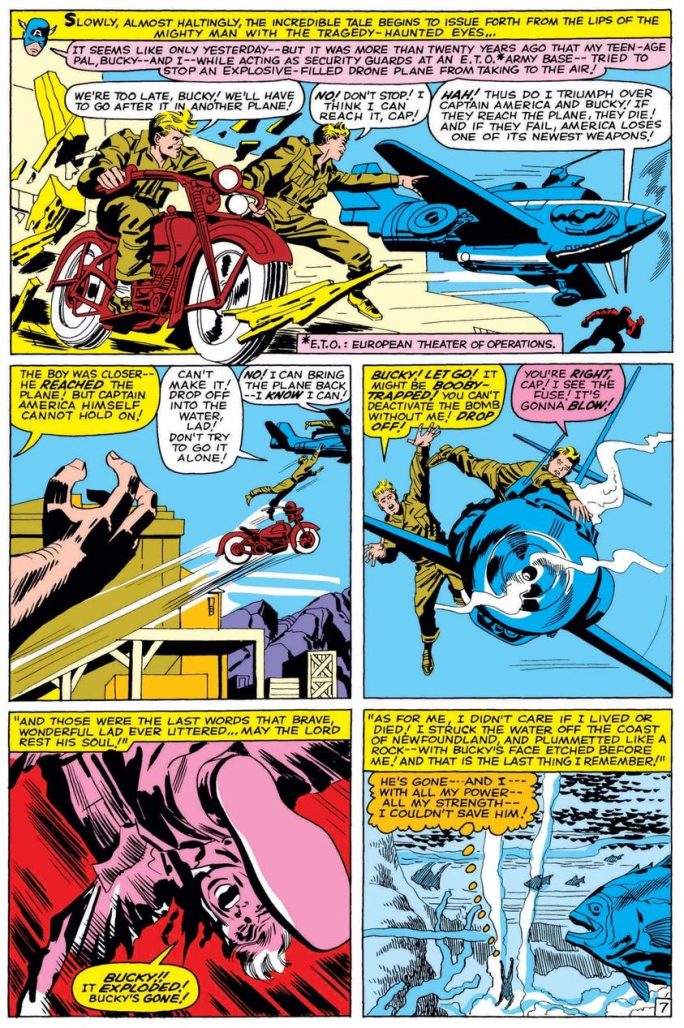
It’s not just about the visuals, though. A key feature of musicals isn’t just that characters break into song, but that they speak their feeling aloud through the power of song. Yes, it’s incredibly silly, and I’ve heard many non-musical fans claim it’s too silly a hurdle for them to get past. But it’s also not dissimilar to the soap operatics of classic superhero comics. Even in the past few decades, as thought bubbles have mostly gone out of style, superhero comics still have a habit of making characters directly state how they feel in the most blunt terms possible.
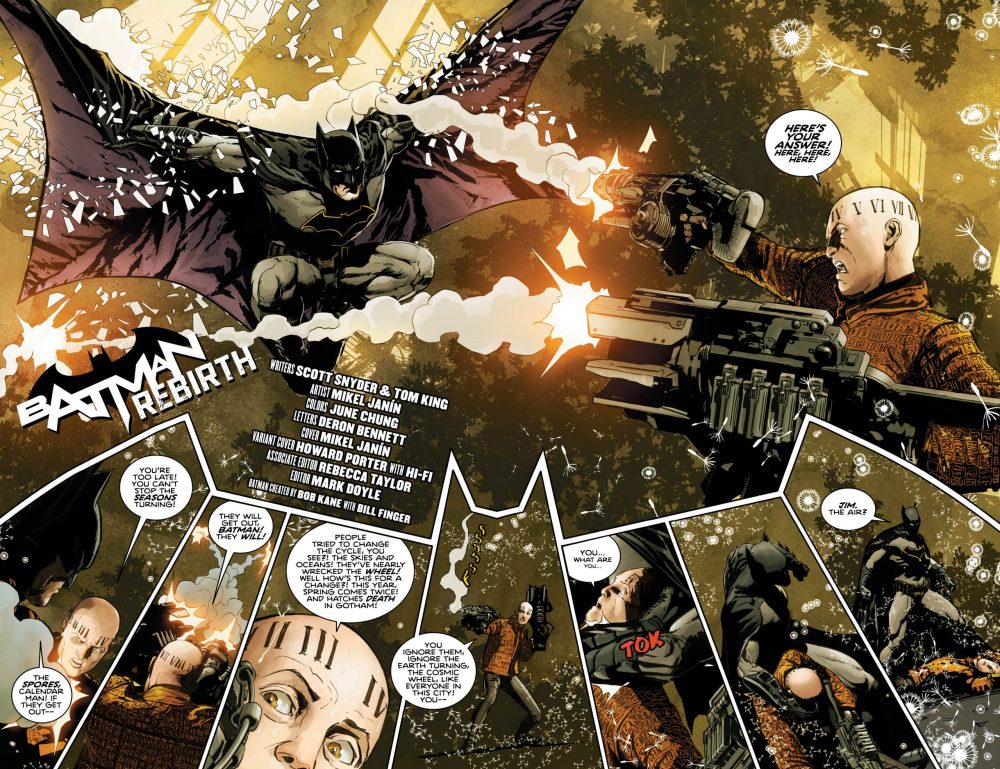
Of course, there are superhero comics that deal more in subtlety, especially ever since Alan Moore revolutionized the way superhero comics are written in the mid-1980s. But for most of the genre’s history, that approach has been the exception, not the rule. When you think superhero comics, you think over-the-top and bombastic. Much like musicals.
I certainly don’t think every superhero movie should be a musical, or even most of them. It’s just strange that it hasn’t been tried in a major way yet when, from where I’m standing, it seems like something that would make sense and has the potential to work beautifully. So why has nobody made the attempt?
For one thing, I’ll allow that the idea of a superhero movie musical probably straight-up has not occurred to many people with decision-making power in Hollywood. Even beyond superheroes, the idea of an action-musical is not really something that exists in American film. As much as I think a superhero movie musical makes perfect sense, I understand that on paper to most people, it’s unheard of.
But once you get past that initial weirdness, I can’t help but think about something I brought up when I defended Joel Schumacher‘s maligned Batman & Robin film from 1997: superhero films are still perceived to be the province of straight men, and therefore, there’s resistance to leaning too hard into elements that are traditionally considered more appealing to women and queer people. I’m saying this as a straight man myself, but the rich queer history of musical theater is undeniable, and I don’t think it’s controversial to state that typically, women are considered to be more of the audience for musicals than men.
From the standpoint of their own financial interests, studios wouldn’t necessarily be wrong for assuming that a superhero movie musical would alienate a portion of their core audience, even if the audience for superhero fiction has a lot more women and queer people than many outsiders to the fandom assume. And let’s face it: we all know that a loud corner of toxic fandom within superhero fandom would throw fits. Frankly, part of the reason why I’m excited for Joker: Folie à Deux to be a musical is out of spite for the horrible dudebros who loved the original. You know the type: these are the same men who hail Fight Club as an epic ode to guys being dudes, rather than the condemnation of toxic masculinity that it is to anyone with more than two braincells to rub together.
[Editor’s Note: It is a shame they couldn’t have figured this out before it was too late for MF DOOM to appear in a Fantastic Four musical. —AJK]
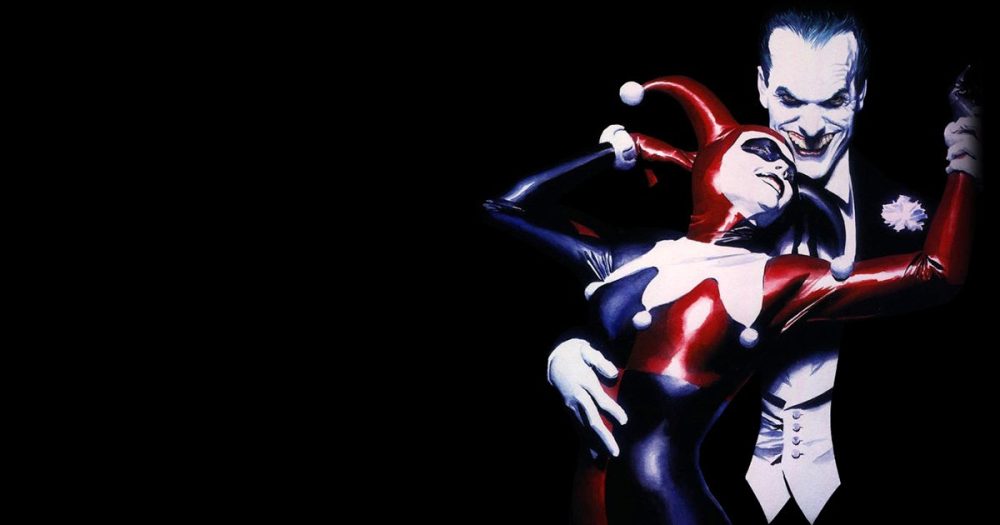
Anyway, even if a superhero movie musical is an outside-the-box idea, and even a financial risk, I maintain that superheroes on film are in desperate need of more risks right now. As much as I like superhero movies and see almost all the ones that come out, they’ve gotten pretty same-y in the past decade or so. There are notable exceptions, of course, but four years after Spider-Man: Into the Spider-Verse, big screen superheroes could use another kick in the pants.
And besides, aren’t you at least curious to hear what Lady Gaga’s song about falling in love with The Joker would sound like?


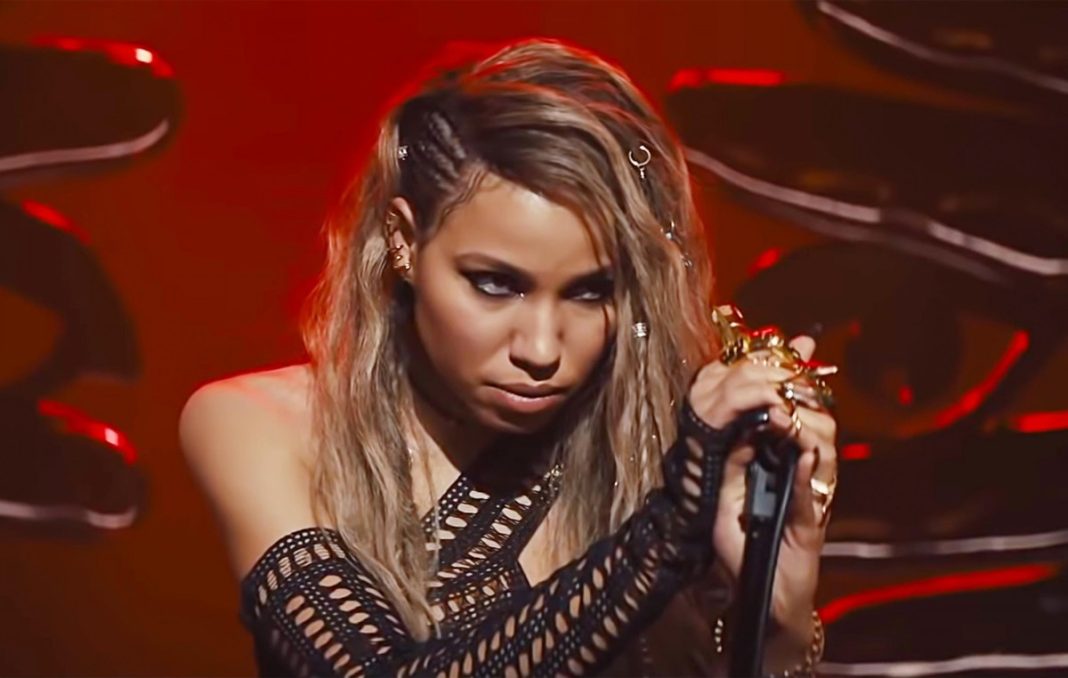
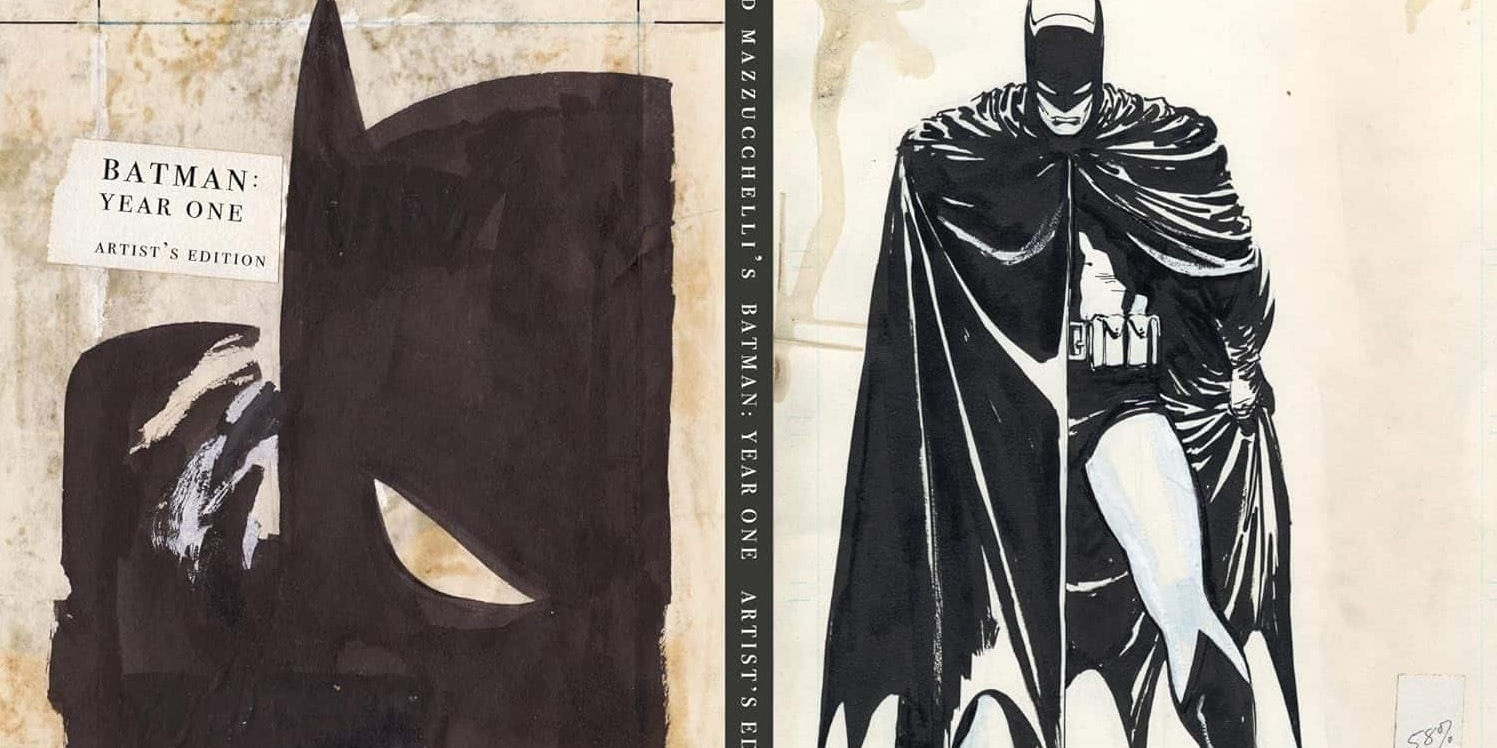
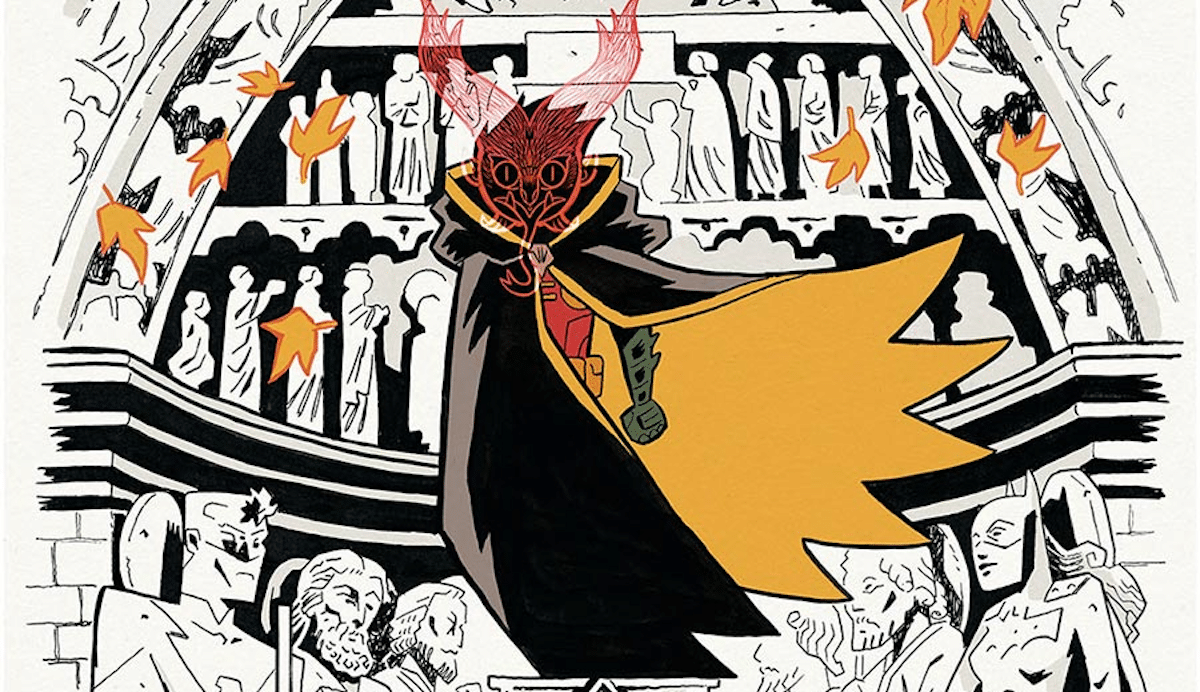
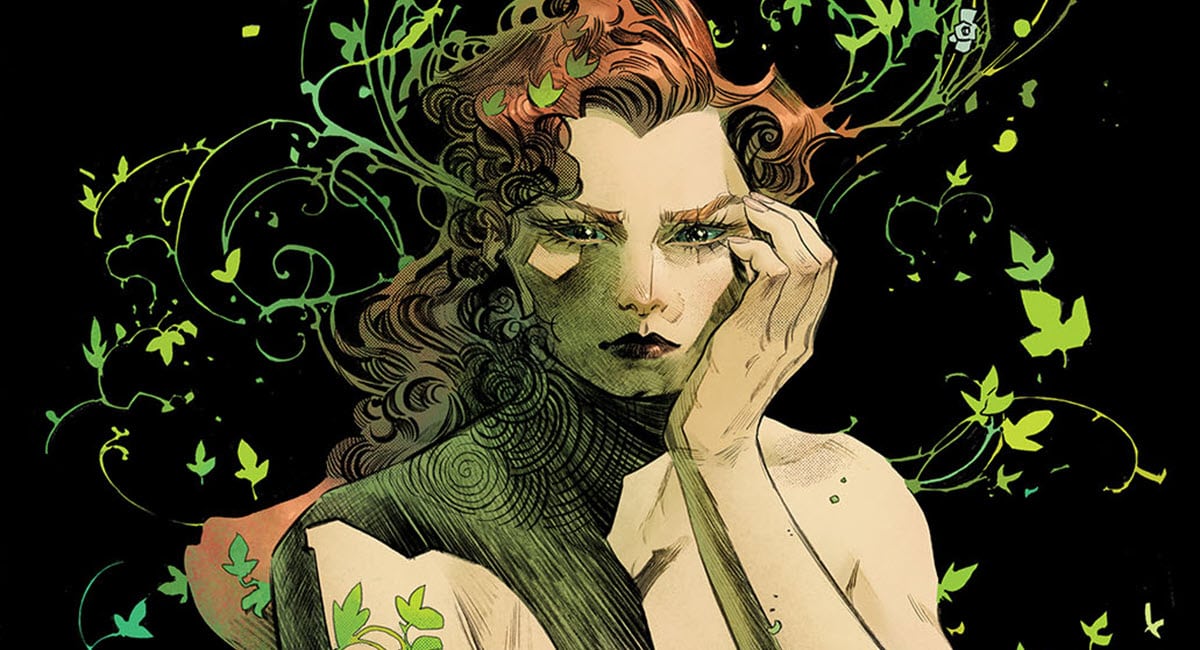


Yo yo yo! Dick Tracy, dawg! The villain is a lounge singer played by Madonna and it is stuffed with songs by mutha-uffin Stephen Sonheim! If Dick Tracy isn’t a musical, Cabaret isn’t a musical. (Cabaret is a musical.)
I am straight guy who loves musicals. I am also Jewish and most musicals are composed by Jews
You need to check out the musical movie The Return Of Captain Invincible. Hearing Alan Alda (Inspector Closeau) and Christopher Lee (Horror Of Dracula) sing is an…experience. Good plot though which got ripped off in the story The Man Who Defeated The Justice Society!
it will come in future for shure, i vote for Wonder Woman
SCOTT PILGRIM also included among its cast Superman and The Atom, both in the person of Brandon Routh.
And for the record, a superhero musical is an awful idea.
So to summarize…
straight cis men hate musicals
Joker is loved by horrible dudebros
Batman & Robin is good
Hahaha! That’s what it boils down to, right? Personally, I like musicals, but not really too many since the 70s. I’m a big Rodgers and Hammerstein, Gershwin, and Cole Porter fan. I liked JOKER. Didn’t love it. I wouldn’t consider myself a dudebro. I’m kind of a dork. And BATMAN & ROBIN is terrible.
Once More, With Feeling (Buffy The Vampire Slayer) /Episode No.
Season 6 Episode 7
Comments are closed.